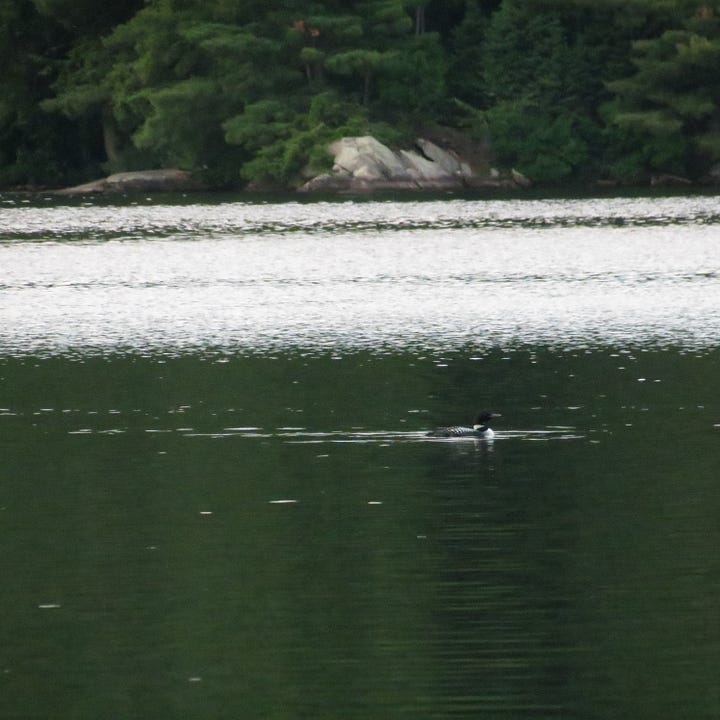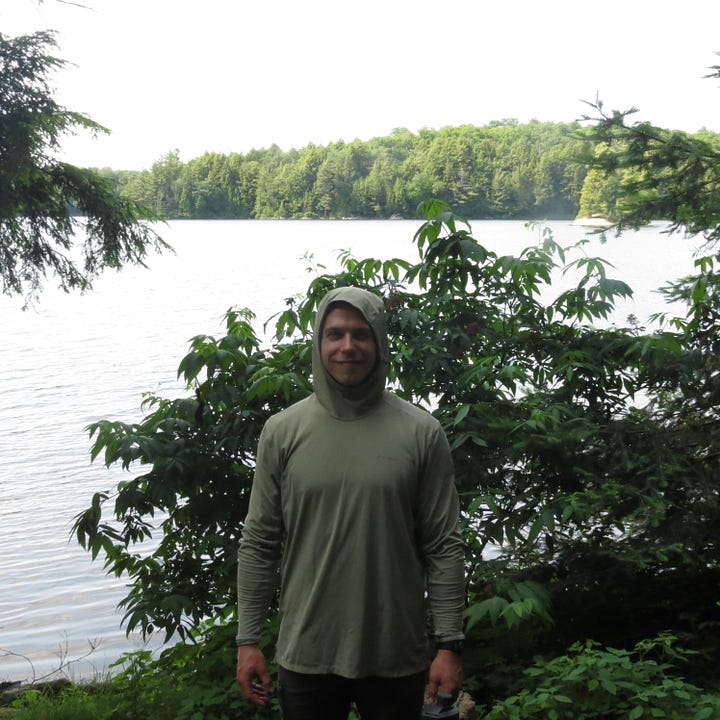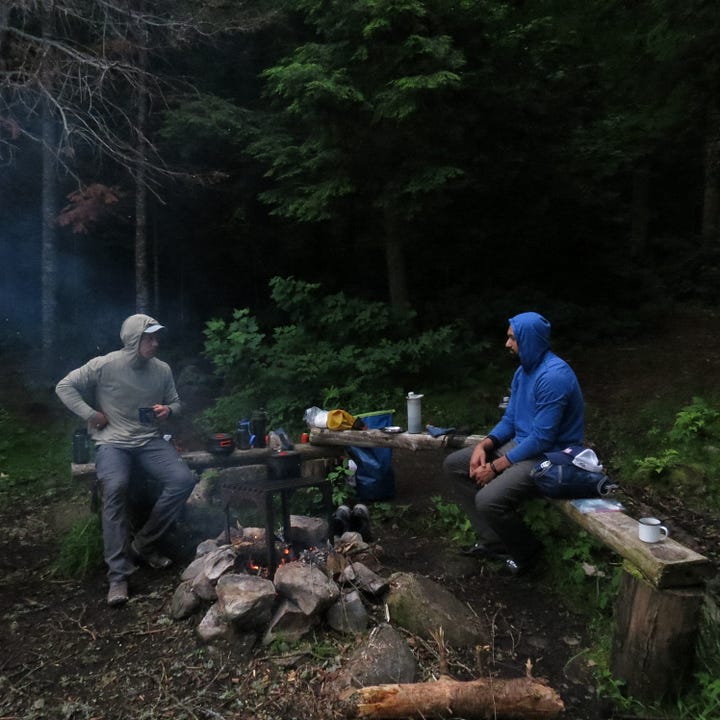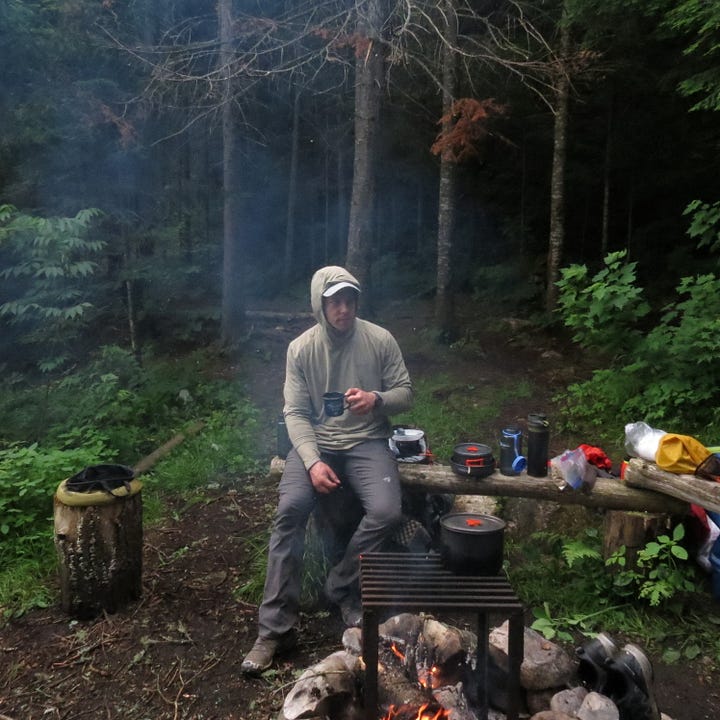Worn Thin
Lying head to toe in a two-person tent, my brother and I were splitting our sides laughing.
The heat radiating down from the summer sun and up our bodies was trapped under the tent’s rain cover, turning it into a humid sauna. Even lying still, sweat trickled from every pore of my body. When the chorus of frogs that lived in the lake beside us began their raucous croaking, the notion of getting any sleep diminished into a hopeful fantasy.
Yet we couldn’t stop laughing.
I shouted to my friend, who was alone in a tent ten feet away from us, “How’s the temperature over there?”
He replied: “Which one of you guys installed AC in my tent?”
Our laughter amplified. It was our coping strategy to accept the inescapable discomfort of the night ahead.
It was 8 p.m. on a July Saturday night and we were tucked into our tents, ready for an early bedtime in the middle of Algonquin Provincial Park’s backcountry. Over the past two days, we endured long hikes with heavy packs in hot, humid weather, under the constant assault of mosquitoes and deer flies.
And though we were in for a long, restless sleep, we went to bed all smiles and laughs.
We woke the next morning groggy and under-rested, fourteen hundred frogs still croaking at full force. After packing up camp and draining a quick coffee while gazing at the sun’s reflection on the glasslike lake, we shouldered our packs and hiked back to civilization.
During the hike back to the car, my friend reflected that this trip, his first backcountry hiking adventure, was the hardest thing he had ever done.
Backcountry camping is an extended period of feeling constantly uncomfortable.
You’re grimy and sweaty. You’d rather stand around the campfire because it’s strangely more comfortable than the notion of sitting on yet another rock or log. Bugs attack you constantly, buzzing in your ears and biting through your clothes. You wake in the morning to discover new levels of muscle stiffness stemming from sleeping on the ground and hiking long distances with heavy packs.
And between organizing camp, packing and unpacking, making food and cleaning up, there is always work to be done. Even the most trivial tasks, like filling your bottle with clean drinking water, turn into a ten-minute affair. When idle moments do arise, boredom sets in. With no smartphones or internet, you’re left with nothing to do but be with your thoughts and enjoy the forest around you.
It offers a stark contrast to our ultra-comfortable modern lives. All the tasks that are done with ease at home take considerable effort and strain in the backcountry.
My friend asked me why I do these trips.
I have many reasons, but one of the most important is the way the backcountry forces my character to develop. Between the bugs, heat, dirt, constant work, soreness, lack of sleep, and all the other forms of discomfort backcountry camping imposes on you, these trips wear me down.
And the only way to figure out who I really am, to see what’s under the polished exterior I present in the untested comfort of my day-to-day, is to see who I am when I’m worn thin.
The ability to laugh in the face of hardship and discomfort is a power that can only be developed through lived experience. In the face of a challenge, you can cry, complain, and get frustrated, or laugh, keep it light, and forge a way forward.
Every backcountry camping trip I go on, I get better at doing the latter.




With love,
Subscribe for new essays every month:





"And the only way to figure out who I really am, to see what’s under the polished exterior I present in the untested comfort of my day-to-day, is to see who I am when I’m worn thin." Right on the money Jack. It pertains to writing too I find. Often the truth comes forward more easily when we don't have the energy to keep up a pretense or kid ourselves about the truth.
Which one of you guys installed AC in my tent was so good. I could feel myself in one of those tents, crying laughing at that comment.